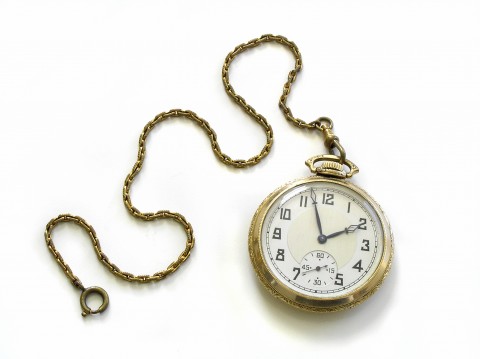
South Africans call themselves ”The rainbow nation,” and with good reason. South Africa is home to a variety of very diverse cultures, with eleven official languages! Approximately 14% of the population speaks Afrikaans, which is a unique cousin of Dutch that was born on the African continent centuries ago.
Learn to speak this beautiful language with us at AfrikaansPod101.com—starting with the most commonly used Afrikaans text and internet slang! You can use any of these in voice-conversations too, of course.
One thing you’ll notice is that most of these expressions are filler words. Afrikaans native speakers, locally called “Afrikaners,” just love them. You can safely and prolifically use most of these in almost any social conversation, and you’ll be appreciated and understood. Even if you don’t really understand what you’re saying. Yup, an uncommon language!
Table of Contents
- Siestog / Shame
- Jinne!
- Lekker!
- Jislaaik / Jissie / Jissis
- Sommer / Just sommer
- Ja-nee
- Nou-nou
- A jol
- Ag
- AfrikaansPod101.com—Learn to Say it Like the Locals!
1. Siestog / Shame
Because South Africa is such a hotchpotch of cultures and languages, naturally a lot of cross-pollination has taken place over time. Therefore, you’ll recognize some of the words, such as ”shame,” a loan word from English.
This is a common text slang in South Africa, and can also be used in daily speech.
However, the Afrikaans people don’t use it quite the way the English do.
Siestog (or shame as Afrikaans text slang) can express empathy, or adoration (mostly of small, cute things).
How to Use
If you visit the country, you’ll probably find your Afrikaans host a caring person. That’s a trait Afrikaners are well-known for.
A: “Can’t join you, sorry, I have a headache.”
B: “Shame / Siestog! Here’s a pain killer. And let me know if I can do anything more to help.”
“Shame” makes sense in this context, because it could be seen as a compound of an English expression: “Such a shame that you have a headache!”
But both words also get used in another way that’s just plain weird to everyone but Afrikaners.
Commenting on something youthful, adorable, or cute, such as a tiny baby or a kitten, most Afrikaans speakers will gasp: “Shame!” This doesn’t mean they’re feeling embarrassment or pity—their protective instincts, compassion, and adoration just get all mixed up, and are (at least to them) perfectly expressed with: “Siestog, how small…!”
It’s a mystery how the Afrikaners ended up using these particular interjections. Maybe it’s because they have roomy hearts and a generous nature? Who knows?

2. Jinne!
This Afrikaans text slang term is perhaps the Afrikaans word for “Wow!”, but it’s infinitely more expressive.
How to Use
Jinne! from the lips of an Afrikaans native speaker can express surprise, excitement, amazement, appreciation, upset, or shock—it really depends on the situation. Its general function is to emphasize whatever you add after it. Or it can just be a noise to make when you feel you’re expected to comment.
A: “I caught a fish today!”
B: “Jinne, that’s amazing!”
OR
“Jinne! Don’t give me a fright like that!”
OR
A: “The pap and wors you can chow at this spaza is just, like, the best in the whole world.”
B: (Not understanding much, nodding with a smile) “Jinne, hey!”
3. Lekker!
The English community in South Africa has adopted this word, and it’s now used…well, almost the same as Jinne! Meaning, you can use it liberally in any situation and context, and it’ll most likely be perfectly acceptable. This includes using it as a text slang term.
Lekker literally means “nice” or “tasty,” though, so it’s best employed in a positive context.
How to Use
Use it the same way you would the interjection “Cool!” in English.
Express your satisfaction with something:
“Jinne, this coffee smells lekker today.”
Or, when you admire someone (usually males):
“My new boss is a lekker guy.”
In some conservative communities, “She’s a lekker girl,” could mean you’re saying a woman has loose morals. Obviously, you might get into trouble this way. Saying: “She’s a lekker mom” or “That woman we just spoke to seems like a lekker person,” should be okay, though.
Or you can use it simply if you agree with something someone says. (Fillers are big in Afrikaans, remember?)
A: “That party is going to be a blast.”
B: “Lekker, lekker!“
This works well as Afrikaans text slang, as well as when you’re in company.
Tip: smile and nod emphatically in agreement.
4. Jislaaik / Jissie / Jissis

This interjection is probably closer in meaning to “Wow!” than Jinne! is, and is used prolifically by the Afrikaners.
How to Use
It’s often used to convey a sense of awe when witnessing or looking at something impressive. If you’re awestruck by, say, the height of the Burj Khalifa tower in Dubai, commenting with only a Jislaaik will be sufficient. Afrikaners will get exactly what you mean. Or you could elaborate—Unnecessarily!—with:
“Jislaaik, what a tall building.”
It’s also perfect to use when you’re in need of an expletive, but you’re afraid to offend. Accidentally hit your thumb with a hammer? A loud Jissis! should be okay, even in children’s company.
If you feel the need to emphasize a point, say it like this: “Jissie, but I’m hungry,” or “Jislaaik, but it’s cold outside!” or “Jissis, now I’m angry!”
5. Sommer / Just sommer
One meaning of this Afrikaans text slang is close to “(Just) because,” but it depends on the situation. It’s also used to describe a cavalier, easy-going attitude or manner of doing something. This can easily be used as a text slang in South Africa.
How to Use
Sommer can be a passive-aggressive reply of note:
A: “Why are you upset with me?”
B: “Sommer.” (Then keep quiet and sulk. Obviously not good for relationship-building, so rather limit using it this way.)
Sommer is also commonly used to express amazement over something easily done, as in: “He sommer shot that ball straight into the net!” Here, it could mean the same as “Just like that!”
Or say it to express a casual, easy-going attitude: “You can just sommer come as you are.”
You can also employ it to brush something away in a conversation, or when you’re not in the mood to think hard about a reply:
A: “Why are you laughing?”
B: “Just sommer.”
6. Ja-nee
This literally translates as: “Yes-no,” and it’s one of those infinitely expressive, yet utterly inexplicable, interjections in Afrikaans. Some say it means the same as the British: “Ja well no fine,” which conveys reluctance or hesitancy, but this isn’t really accurate.
How to Use
Basically, you can use Ja-nee as a conversation filler to convey your wholehearted agreement with a point someone’s making. Always use it at the start of a sentence.
A: “Politics can be so dumb!”
B: “Ja-nee, it certainly can be.”
OR
A: “This course is really good.”
B: “Ja-nee, we’re learning Afrikaans easily with AfrikaansPod101!”
7. Nou-nou
This sounds like you’re saying “No, no,” but it’s not even close in meaning. It has to do with time, and is almost as mysterious in meaning as Ja-nee. It’s not difficult to use, though.
How to Use
Nou-nou refers to an indefinite time in the near future. It could be very near, like within a minute or two, or not so very near, like within an hour or three.
This time-telling isn’t an exact science at all—it’s a non-committal way of giving someone a time.
A: “When are you coming?”
B: Nou-nou.
OR
A: (On Christmas Eve: ) “Mom, when is Father Christmas coming?”
B: “Nou-nou. Be patient. He probably got stuck in a chimney.”
8. A jol
Afrikaans people say a jol to express that they’re having a good time. You’re really enjoying yourself when you’re having a jol. It can also mean the same as playing, or refer to an actual party.
How to Use
Very simple:
A: “So, how was your office Year End event?”
B: “Man, we had such a jol!”
OR
“Let’s go jol tennis tomorrow.”
9. Ag
No list of Afrikaans text slang would be complete without Ag. Afrikaner babies are born knowing how to use it. It sounds the same as the Scottish “Ach,” another word for “Ah.” But it doesn’t mean the same thing at all.
How to Use
You can use it to depict disappointment, as in: “Ag no, man. We just missed the train!”
It can convey the sense that something isn’t as big, bad, important, or terrible as it may appear: “Ag, don’t worry about the spill. It was an old jacket anyway. And the red paint splatter looks kind of lekker.”
It can also be used to strengthen Jinne, and Shame / Siestog as in:
“Ag jinne, that baby elephant is adorable!”
OR
“Ag shame, you must be really tired.”

AfrikaansPod101.com—Learn to Say it Like the Locals!
Be lekker; learn to speak Afrikaans. With AfrikannsPod101.com, you won’t make a mistake, as you’ll be learning with the best team! From text slang in South Africa to more elaborate conversational and cultural information, we have you covered.
Sign up for a free online course now, and create a lifetime account. You’ll have access to the following and more:
- A vibrant online community
- Free lessons on iTunes
- Free audio books
- Excellent free apps
What’s not to love?!
If you’re serious about your learning, make use of the three different learning plans—so affordable, the only suitable comment is Jislaaik! Just sign up, sommer now.















